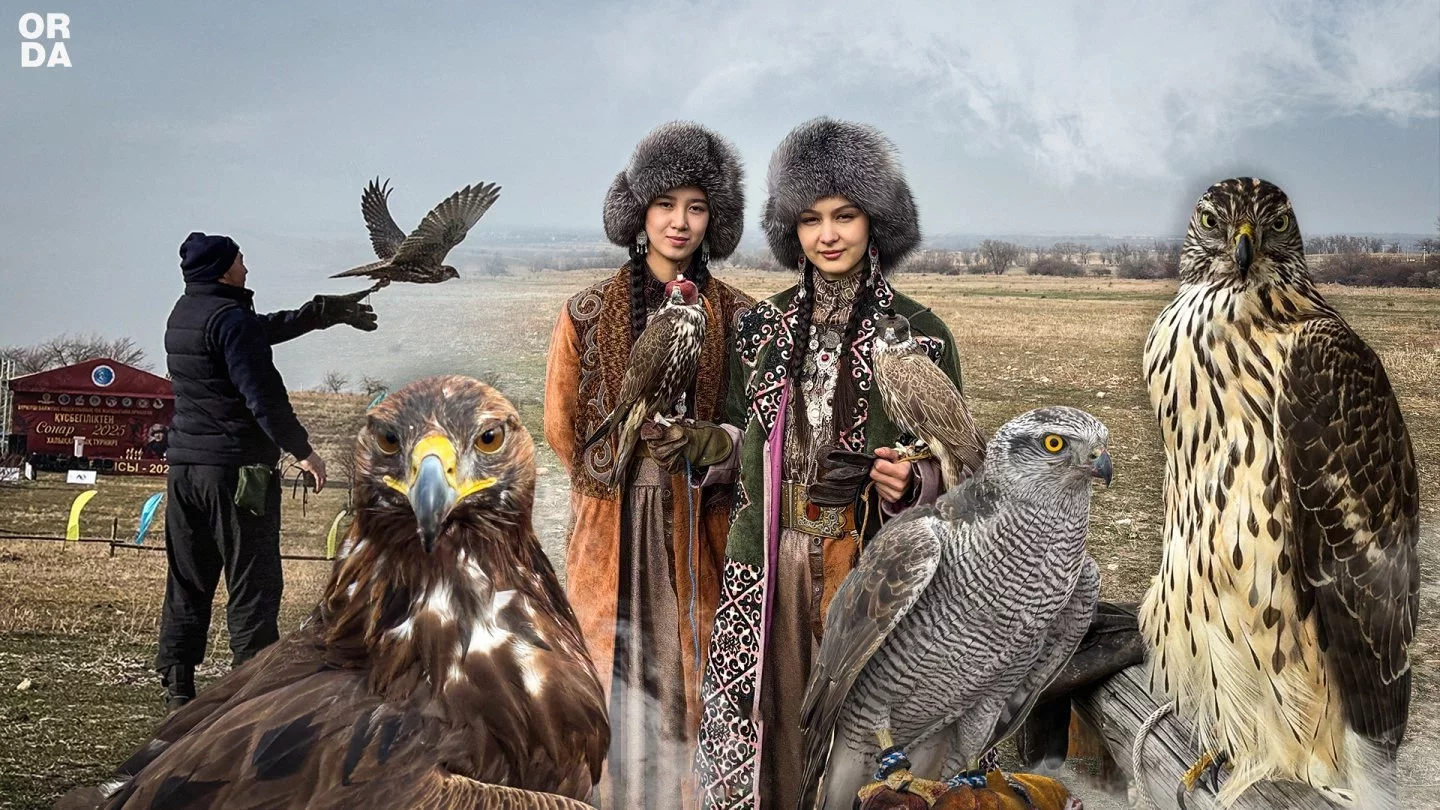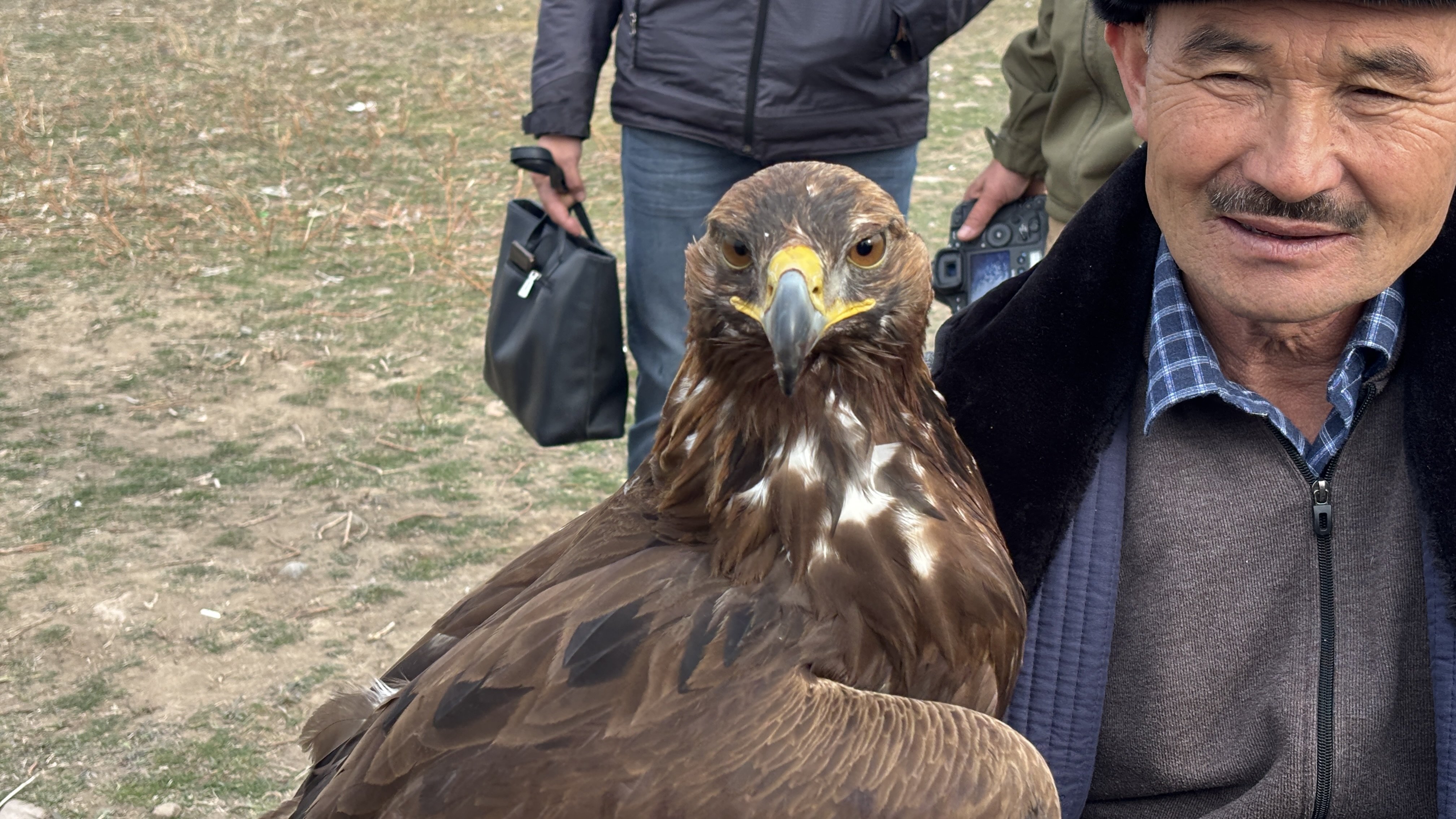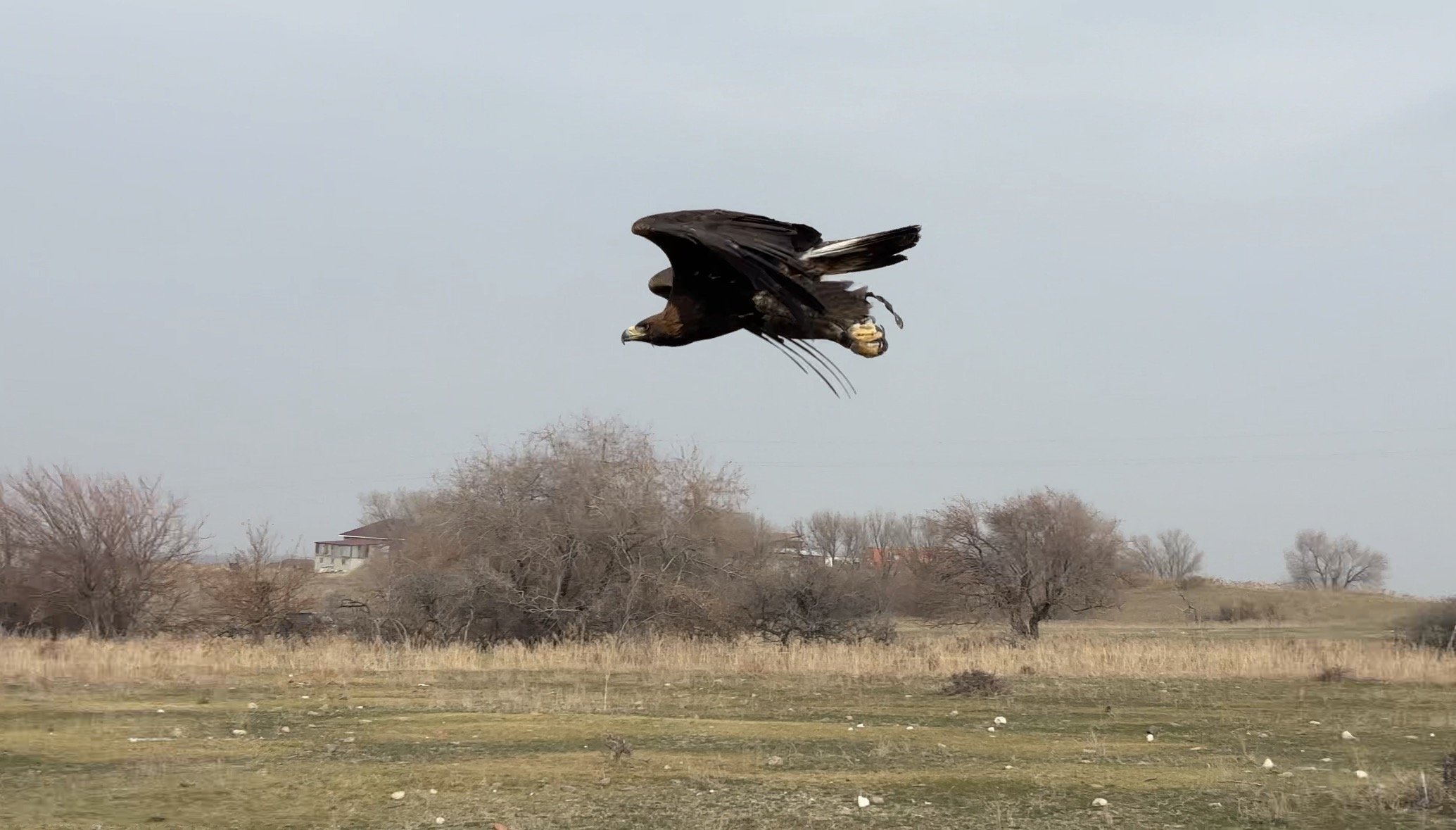"During Famine, a Single Bird Could Feed an Entire Auyl": What Concerns Today’s Burkitshi
 Photo: Orda.kz
Photo: Orda.kz
The international annual tournament Sonar-2025 was held in the Qyran center in the Almaty region. This year’s event was dedicated to the 105th anniversary of the legendary burkitshi (Eagle hunters – Ed.) Baizhunis Kodekov.
More than 100 qusbegi (bird raiser) from 11 regions of Kazakhstan, as well as masters from China, Mongolia, Kyrgyzstan, and Uzbekistan, gathered at the foot of the mountains.
An Orda.kz correspondent found out what concerns the keepers of this ancient tradition today.




In the final stage of the tournament, hunters competed with golden eagles, saker falcons, and peregrine falcons.
The weather worked in the participants’ favor: the thermometer showed +11, and the cloudy sky created ideal flying conditions — the sun did not blind the birds. Sonar is usually held in late November on snow, but this time the foothills greeted guests with bare ground.
Falcons: Small but Relentless
These birds are true living machines, designed by nature for hunting. Falconers were tested in two disciplines: the bird flying from hand to hand (responding to a call) and pigeon hunting.
While the raptors competed in the sky, we asked participants what it feels like to keep a wild bird in captivity and whether it can be considered happy.
My falcon is named Kokzhendet (Heavenly Executioner). I named him that so he would be fierce in the hunt. He is three years old. I believe he is happy. We feed him fresh meat every day — he lives fuller and easier than his kin in the wild. In the mornings we give him pigeon meat: the birds love it. There are plenty of pigeons around here, enough under the roofs of the houses, said Beksultan Seyitzhan from the Almaty region.
Another participant confirmed that the bond between a qusbegi and his bird is deeper than it seems:
Our birds are happy because they have become part of the family. We do not let them go hungry, and we make sure their lives are no worse than in the wild. When we are away from them, we worry just as they do. The more you love your bird, the better it treats you, shared Beimurat Zhaksybek from Almaty.




After the falcons, it was time for the hunters with peregrine falcons, which can reach speeds of up to 322 km/h. At the tournament, the winner was determined in two disciplines: dalbay atu and the hand-to-hand flight.




Dalbai atu is a spectacular exercise: the hunter spins a lure made of wings on a long rope, and the raptor must strike the “prey” as many times as possible during three minutes.
Golden Eagles: The Kings of The Steppe
The tournament concluded with heavyweights — steppe and mountain eagles.
Golden eagles competed in hunting corsac foxes and in coursing — a speed and reaction test.

During coursing, markers are set along a 300-meter track, and at the finish line, a special mechanism pulls a simulated prey — an artificial fox that the bird must catch.
Guests from neighboring countries highly praised the skills of Kazakh qusbegi:
Here are the Alatau mountains — half in Kyrgyzstan, half in Kazakhstan. We have similar languages, traditions, and dishes, including hunting with birds of prey. But of course, each bird has its own character. In Kyrgyzstan, seven or eight similar tournaments are held every year, while here this is already the 19th in the tournament’s history. But, frankly, we actually hold fewer competitions, said Tolebek Adamaliyev from Kyrgyzstan.

The Best of The Best: The Winners
After two days of intense competition, the judges identified the strongest qusbegi in the country.
- Among the burkitshi, first place went to Yerasyl Serikbekuly from Astana
- Among the falconers, the best was Berikbolsyn Babazhan from the Jambyl region
- Among the peregrine falcon hunters, victory went to Tanat Ospankulov from the Qaraganda region
What Concerns The Burkitshi?
In Mongolia, tournaments with hunting birds have long become a national brand. In Bayan-Ölgii province, where ethnic Kazakhs live, the Burkit Toi festival attracts thousands of foreign tourists. It is known worldwide.
But outside the country, few have heard of Kazakh tournaments. We discussed the reason for this contrast with Tattimbet Kapuly, a burkitshi and honorary citizen of the Urdzhar district in East Kazakhstan region:
Our ethnotourism is poorly developed. Recently we went to Mongolia for the Asian Championship: four burkitshi traveled there, and it is impressive how many tourists come to see their festival. Here we have neither spectators nor wide coverage, nor connoisseurs. Unfortunately, high-ranking officials hardly support this. Even here, when about 30 burkitshi gather, we simply enjoy each other’s company — as participants and spectators. But we are not developing. If officials paid attention, this could become a powerful attraction for tourists.
Tattimbet is convinced that hunting with a golden eagle is not just a sport, but a code of the nation’s survival:
As long as we exist, the golden eagles will not die, and as long as the eagles exist, we will not die. In Kazakh history there have been many tragedies and joyful events, but we were always beside the birds. During famine, a single bird could feed an entire auyl. We keep birds to pass this tradition on to the next generation, so they do not forget their roots, Tattimbet concluded.
Original Author: Nurtore Jumagul
Latest news
- Another $300M Seaport Planned in Mangystau With Chinese Partner
- China or KTZ: Who Is to Blame for Kazakh Grain Wagons Stuck at The Border?
- Soldier Loses an Eye After Oath Ceremony in the Jambyl Region
- "During Famine, a Single Bird Could Feed an Entire Auyl": What Concerns Today’s Burkitshi
- Kazakhmys and Kazzinc May Soon Change Owners Amid Negotiations
- Foreign Ministry Clarifies It Has No Role in Case of Former Transport Prosecutor
- Komil Allamjonov Appointed Minister-Counselor at Uzbekistan’s Embassy in Washington
- Four Deputy Chairs Resign from Atameken National Chamber of Entrepreneurs
- FT: U.S. Peace Plan Cut from 28 to 19 Points After Geneva Talks
- Rare Argali Spotted in Altyn-Emel National Park
- Yana Legkodimova: Ministry Details Investigation Into Homicide Case
- Worker Electrocuted at Bogatyr Komir Mine in Pavlodar Region
- U.S. and Ukraine Agree on Most Points of Peace Plan in Geneva — RBC-Ukraine
- Majilis Deputy Comments on New LGBT “Propaganda” Amendments
- Almaty: Proposal Made to Build Innovative Hydroelectric Station in Sayran Area
- ALMEX Sells 7.6% Stake in Halyk Bank for $475 Million
- Court Returns Illegally Sold Railway Section in Jetisu Region to State Ownership
- CSTO to Select New Secretary-General as Tasmagambetov’s Term Ends
- Kazakhstan: KNB Detains Six Suspected of Promoting Terrorism
- Too Еarly to Announce Ukraine Talks' Result, Rubio Says

